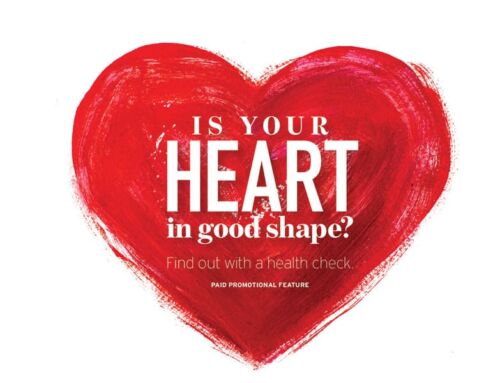By Akers Editorial
A Life Ruled by Alcohol
“I never said, ‘Hey, give me a double of that stuff that cost me my wife; give me another shot of that stuff that never got me promoted; give me some of that DUI.’”
– Joe
“We were going through a family tragedy at the time and my wife needed some strength and hope in her life – instead she wound up with a hopeless, helpless drunk,” says the resident of The Villages we’ll call Joe.
“I remember [at the time] telling her I got another DUI and it wasn’t the first one. She looked at me with a look I’ll never forget, nor do I ever want to forget. It was a look of disgust; it was a look of hatred; it was a look that I could see in her eyes that said, ‘My life is going to continue and I don’t care if you are a part of it or not.’”
At that very moment in time — a moment Alcoholics Anonymous (AA) calls “the jumping off point” – Joe reached what he refers to as his tipping point. “It’s a point in life when you reach the bottom,” Joe explained. “There’s a lot of different triggers but you know when you’re at it. You know it’s a moment in your life when you can’t live another day with alcohol, but at the same time you don’t know how to live without it. It’s pretty much a level of pain that no man should have to endure.”
After decades of heavy drinking, one failed marriage, a second one on the cusp, a failed eight-month attempt at sobriety, lost promotions, and multiple DUIs, Joe knew he had reached a crossroad. “I had heard about AA before but I didn’t know how it worked and there were two things that kept me out of AA,” Joe said. “One, I was afraid it wouldn’t work for me, and two, I was afraid it would work for me.
“See, what I learned in recovery is, as an alcoholic, I knew I drank too much but my real problem was I never drank enough,” Joe continued. “If one drink made me feel good, two drinks would make me feel better and three drinks made me feel wonderful. I would continue until some outside force would stop me – the bar would close, I ran out of money or the bottle would be empty.”
Joe had what he calls the phenomenon of craving. “I cannot drink normally,” he said. “I take a drink and I want more and more and more – that’s just the way I am.
Joe began drinking when he was just 13. He was like a lot of other guys his age – they drank because it was considered cool and made them feel grown-up. “The one thing I knew about alcohol at the time was I liked the way it made me feel – I loved the effect of alcohol – it was euphoric,” Joe said. “From the very first time I had a drink, I kept chasing that euphoria.
“I was what some people call a working alcoholic. I was in the Navy, went through school and managed to get through everything without getting into too much trouble.”
But his personality definitely changed when he drank. Joe said, “I lost my inhibitions; I lost my reserve and I used to think I became gregarious and this wonderful person who was the life of the party. Other people probably perceived me as a big jerk because I was. I truly was. And I admit I wasn’t the most loyal husband in the whole world.”
Joe explained that alcoholism is a three-part disease: physical, mental and spiritual. “The physical part I can’t do anything about,” he said. “Once I start craving alcohol there’s nothing I can do about that – it’s something I was born with.
“Then there’s the mental part – something we call the mental obsession,” Joe continued. “I say, ‘Give me a drink’ because it’s going to make me feel better, but I know it’s not going to – that’s a crazy mental obsession.
“The third part is spiritual,” Joe said. “I was totally devoid of any spirituality – I had no idea how to really relate or enjoy the company of others. I couldn’t appreciate life for life’s sake. There was an emptiness in me – just a big hole in there.
“Even as a youngster I felt like I didn’t fit in with the crowd I was with,” he continued. “I wasn’t as good as they were; when I got something I didn’t deserve it; I was lonely in a crowded room; I tried and tried to fill that emptiness with alcohol and it didn’t work.”
When asked if any triggers induced him to drink, Joe responded, “A good alcoholic will make an excuse to drink. Out of thin air, I’d create an argument with my wife so I could go storming out of the house and go drinking, or I’d be happy about something and have to celebrate – that’s the level I’d go to. At the end, I’d drink because it was the only thing I knew how to do.”
On the fateful day mentioned at the beginning of the story, when Joe knew he had let his wife down at a time when she needed him the most — when he reached his tipping point — he remembered AA. “I remember going upstairs and looking up the number of AA in the phonebook and giving them a call,” Joe explained. “They told me about this meeting and I went having no idea what I was going to find. I was frightened to death; I was scared; I was disgusted with myself. I thought my life was over and that any joy I had in my life was going to be over.”
Joe, who was in his 50s at the time, said he expected to sit around with old men covered in dust lamenting that they couldn’t drink anymore. But what he discovered was exactly the opposite. “What I found in there were men, women, young people, old people, white people, black people – it was a spectrum of the community we lived in. I sat down but was frightened to death. Then this guy came over and sat next to me and asked if I was OK. He said to hang in there. I sat there and the meeting surprised me.
“There was laughter and there was joy in that room – these people were enjoying their recovery,” he said. “There was an overall sense of joy from those people because their lives were not miserable – they were grateful for becoming recovering alcoholics.”
At the end of the meeting Joe was given an AA book and some of the men gave Joe their phone numbers. When Joe went home, his wife was curious about the meeting. “That woman was full of questions,” he said. “She wanted to know how often I had to go to meetings, where the meetings were, how much did it cost. She was anxious, but in a good way.
“It’s been a joyous recovery, it truly has,” Joe said. “I’ve been sober almost 18 years now. AA has given me a whole new direction – not one of fear, but one of faith. So now I can learn how to enjoy life – that life I was missing. That emptiness that I felt before is filled. It’s filled with spirituality; it’s filled with hope; it’s filled with a whole bunch of other emotions that I never had before.
When asked where he would be now if he hadn’t stopped drinking, Joe’s response was short and quick. “Dead,” he answered with conviction. “There’s no doubt in my mind. I don’t know how I would die, but I’d either be dead or in a penal or mental institution.”
Joe understands that much of The Villages’ evening social life revolves entertainment on the square and parties where alcohol is served. How does he cope? “I hang around the majority of the time with non-drinkers,” he responded. “There are a lot of non-drinkers in The Villages who can enjoy themselves without drinking. That’s not to say I hang around with just tea toddlers, they’re just not the big party animals.”
Joe added that when he and his wife go to the square or to a party and he begins to feel uncomfortable, he tells his wife and they leave. “It’s as simple as that,” he said. “My wife understands.”
“I can honestly tell you I love my wife more today than when I was out there drinking. Our marriage today is held together with love and trust and that’s great. Life is great. I wake up each morning enjoying the fact that I’m alive.”
Advice from Joe
If you think you are an alcoholic:
If you think you are in trouble, you are.
Once you start thinking about not drinking, do something about it. But do it for you. Any recovery program only works if you are ready for it to work. Do it for yourself, not for your wife, your children, or your friends.
Call the local AA hotline (which is manned 24/7) at 352.360.0960 or visit the organization’s website at www.aalakesumter.com. You’ll find local meeting information both inside and outside of The Villages. There are more than 25 different AA meetings in The Villages each week.
Check The Villages Recreation News for dates, times and locations.
Visit the national website at www.aa.org.

































